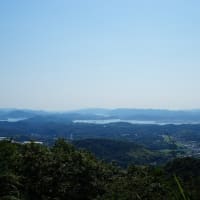Revitalize Japan, Abolish the University Chair System
2022/02/24
This chapter had suffered a crime of search obstruction.
Resend.
The following is from the serial column of Ms. Yoshiko Sakurai, who brings the weekly Shincho released today to a successful conclusion.
This article also proves that she is a national treasure defined by Saicho, the supreme national treasure.
It is a must-read not only for the people of Japan but for people all over the world.
Revitalize Japan, Abolish the University Chair System
Hisashi Yamamoto, a professor at Chubu University candidate for the Nobel Prize in Chemistry, urges, "Japanese people, become people who can move."
"A child who knows the emotions can surely grow up greatly in the rest of his life. After becoming an adult, you will become a person who can invent and discover. Succeed in great work" In his recent book, "Japan's Open Problem is in the Humanities" (Sankei Shimbun Publishing), He has made a point.
He says that if we treat our family, friends, country, society, and all things in the world with a moved heart, we will create deep connections.
Mr. Yamamoto says that if you do not know the impression, almost everything will change at a speed beyond your imagination, you can not respond, and it is difficult to survive; that is why you can hurry back to the rich sensibility of the Japanese people.
Mr. Yamamoto urges us to hurry back to the original rich sensitivity of the Japanese people.
In his previous book, "Japanese People Don't Have to be Logical," he argued that the strength of the Japanese people lies in their emotions.
He said that Japanese people should have more confidence in being Japanese.
He stresses that the soft and rich sensibility is the mother of all great ideas in academics and research and that this is where the "rebirth of Japan" begins.
Based on his own experience as a researcher, he asserts that it is impossible to create without a rich sense of sensitivity.
For example, he wrote that he had never encountered a Nobel laureate who thought logically; they were all people of emotion.
His sense of this goes back far into history.
He thinks that the nurture of Japanese emotions and delicate sensibilities began in the Jomon period.
For about 10,000 years, the Jomon maintained a peaceful society and enjoyed a high level of culture.
In fact, I feel that their spiritual world is connected to Shintoism, which is also the basis of Japan's national character.
For example, it is a way of mourning for the dead.
In the Jomon settlements, it carefully maintained the graves of the dead close to where the living lived.
The Jomon, who protected and maintained villages of 1,000 to 1,500 people for thousands of years, were people who lived in a spiritual world where the dead and the living were one.
The Jomon's belief that the spirits of the dead are still with us, watching over us, even after their bodies have perished, may be connected to the Shinto view of life and death.
The Spirit of the Meiji Restoration
In the rich nature of the Japanese archipelago, the Jomon people created a society of mutual support that would surprise even modern people.
In addition to their view of life and death as living with the dead, they respected nature and valued their fellow villagers.
They also lived a life of abundance in terms of food and handicrafts.
The values that underpinned the Jomon villages were a gentle code of respect for each individual.
It is precisely because such a community full of humanity continued to exist in the Japanese archipelago that Prince Shotoku's 17-article constitution was born.
In the Kamakura period (1185-1333), the values of the right were presented as a concise principle of "morality" as an "idea that denies conflict itself.
It is the value system that prioritizes the prosperity of the group as a whole, according to Mr. Yamamoto.
In his view, "morality" has since become the keynote of Japanese society.
The power of collectivism enabled Japan to overcome the crisis at the end of the Edo period and carry out the Meiji Restoration.
As history expanded from the end of the Edo period to the Meiji Restoration, a group of Japanese ran through while playing their respective roles.
Whether it was those who lost their young lives that were too regrettable or those who lived to accomplish the great deeds of the Meiji Restoration, all Japanese gave their all for the sake of Japan amid a national crisis comparable to the current drastic changes in the international community in the 21st century.
Among them, for example, was Hashimoto Sanai of the Fukui Domain in Echizen Province.
He was the only child of Hashimoto Hikoya, a doctor at the back of the clan.
Sanai began studying Chinese classics at the age of 7 and has read and understood all 65 volumes of the "Romance of the Three Kingdoms" at the age of 10.
He read and understood all 65 volumes of "The History of the Three Kingdoms" at the age of 10. It is difficult for even educated adults to read and understand 65 books.
Sannai also learned about the reality of the Opium War by reading "The Records of the Holy Wu," written by Wei Yuan, a thinker of the Qing Dynasty.
How unreasonable the British were in waging war and how they drove the Qing Dynasty to the brink of exploitation and tyranny.
Knowing the threat and cruelty of the powers, Sanai believes that our country must open up to them to gain strength.
He also proposes a geopolitical strategy that Japan should establish relations with Russia.
We are overwhelmed by the depth of his learning from the many letters left by Sanai.
The depth of his learning is overwhelming, and his penetrating vision of the world is astonishing.
At the young age of 26, Sanai was condemned to death in the Ansei Purge of Ii Naosuke.
It is heartbreaking to think of the regret of a 26-year-old young man.
We can only regret what a loss it was for the Japanese nation.
Saigō Takamori said that he could not have built his worldview without interacting with Sanai, six years younger than him.
With such people, history turned to the Meiji Restoration, and Japan could barely avoid the threat of the great powers.
Based on this history, Mr. Yamamoto says that the Japanese people should return to the spirit of the Meiji Restoration.
I agree with him.
Stagnation like crawling on the ground
And what is happening to Japan now that the Meiji Restoration is over?
For at least the past 30 years, Japan has been in a state of continuous decline.
Japan and the Japanese people have lost their original Japanese character.
We have been losing our strength in academics and research.
To put it simply, the University of Tokyo, Japan's highest academic institution, is now ranked 35th globally, let alone in the top 10.
Realistically speaking, Japan is getting poorer by the minute.
While almost every other country has experienced 30 years of steady economic growth, Japan alone has been crawling on the ground.
Japan is on the verge of being overtaken by even South Korea regarding per capita national income.
The reason for this, according to Yamamoto, is that Japanese society has been losing its Japaneseness.
He says that Japanese society has forgotten to take advantage of its long history of collectivism in university education, the way research is conducted, and how companies accept researchers.
The importance of groupism, as described by Mr. Yamamoto, who has achieved results in original research as an individual, would mean to cherish an individual's talent and utilize it for the whole.
Using Sanai as an example, the feudal lord Matsudaira Yoshinaga sent Sanai, who was only 16 years old, to Osaka to study under Ogata Koan.
Later, he took him up in the political arena.
Although Sanai was sentenced to death for this, the idea was not to bury talented individuals but to give them a place to play an active role for the nation's sake and to demonstrate their power as a group.
As an educator and researcher, Mr. Yamamoto predicts that Japan will decline if this trend continues.
He advocates unleashing young researchers and ending the current Chair System in universities to prevent this from happening.
He urges us to stop stifling creativity by tying them to the hierarchy of full-time professors, associate professors, and assistant professors.
Strengthen the power of Japan as a whole by paying all the young people studying in doctoral and graduate programs to do free research, just like in Europe, the U.S., and China.
I fully agree.


















